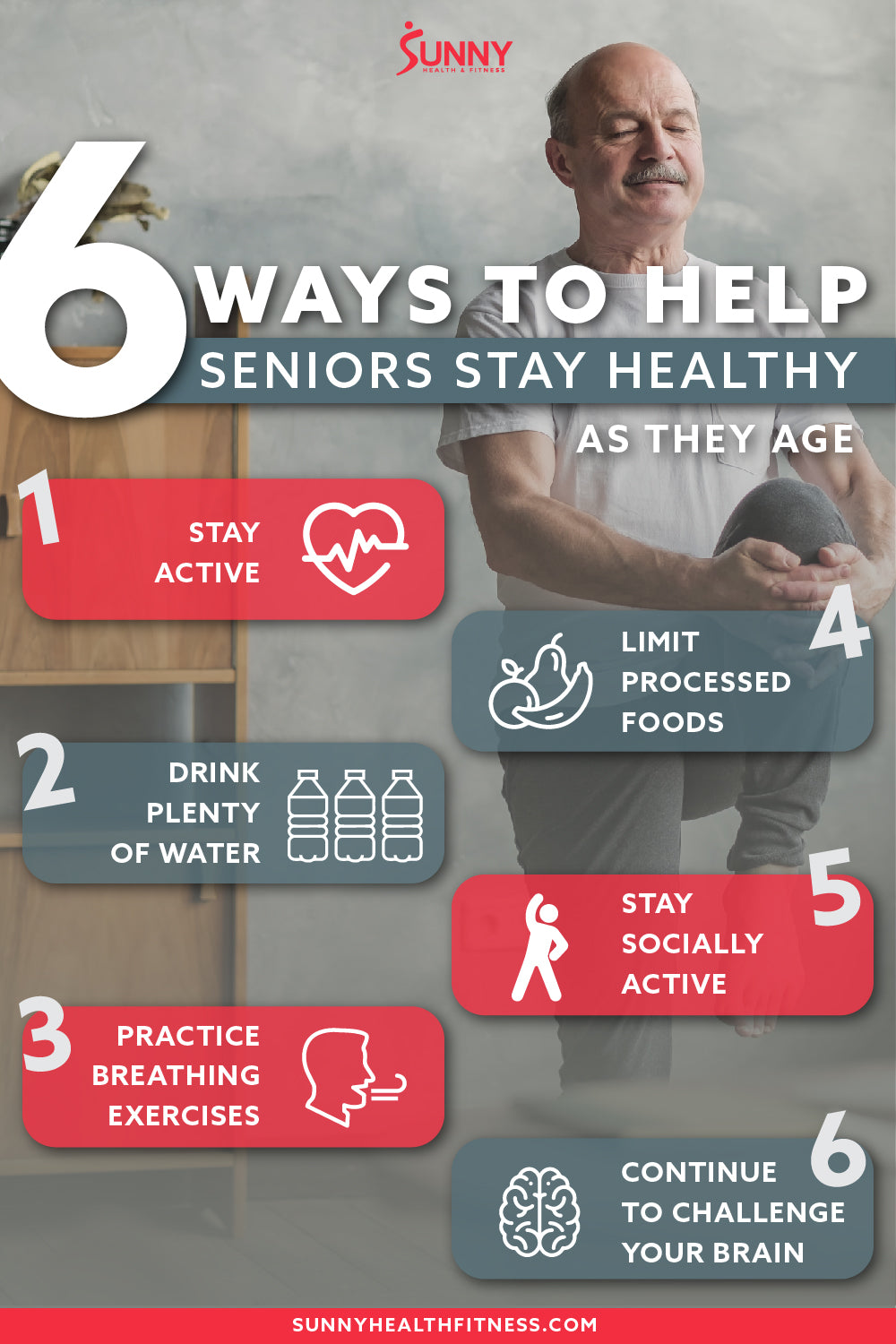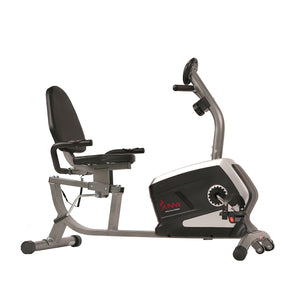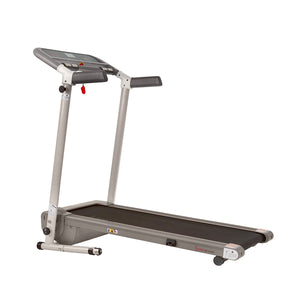When I chat with my elder friends and family, I am often told that I have "youth on my side, " citing the physiological challenges of aging. However, aging and growing older provides wisdom, perspective, and an attitude often unattainable to a younger demographic.
Working with an older population as a health and wellness professional has and will always be a delight for this reason. These experiences have shed light on many of the challenges that come with age. Learning about osteoporosis (bone loss), sarcopenia (muscle loss), and memory loss in a textbook - is much different than working with a client face-to-face who is experiencing these physiological effects of aging.
Until we find the fountain of youth, practicing these 6 happy aging tips is essential for seniors to stay healthy.
1. Stay Active
The positive benefits of exercise are well documented. Exercise is crucial to improving heart health, bone strength, maintain muscle mass, and much more. Just browse our blog and product page if you need more proof!
It is common for us humans to dwell on what we cannot do. Rather than looking at headwinds, blowing against our sailing ship slowing us down, let us use tailwinds to propel us forward. It is essential to focus on what you can do when it comes to exercise.
There is no gold standard for what seniors should do and how long they need to work out. However, the CDC recommends 150 minutes of exercise spaced throughout the week, allowing your heart rate to increase past your normal resting heart rate.
If you are new to physical activity, keep in mind to start light and slow, aiming to keep your heart rate between 75-135 BPM for the duration of your workout. Now that you know how long and at what intensity to exercise, you will decide what you will be doing to increase your heart rate.
Here is where it is crucial to focus on what you like to do and can do. Choose 1-3 of your favorite activities, whatever they are. Getting started is often the most challenging part of beginning an exercise routine. But just as Sir Isaac Newton taught us, an object in motion is hard to stop, or something like that!
Writing down and tracking your progress in a calendar that you see daily is a fantastic way to stay motivated and keep yourself accountable. Try recording your progress and how you felt that day after completing your daily movement.
2. Drink Plenty of Water
I believe liquid intake to be an undervalued component of our daily health routines. It is estimated that 75% of Americans suffer from dehydration. Now, you know that your body is composed of almost 60% water. That means a lack of water in the body will negatively affect nearly all systems in your body.
Adequate hydration helps brain function and focus, muscle and tendon strength, proper digestion, healthy skin, and many more. Here is a quick and easy way to calculate how much water (in ounces) you should be drinking:
Body Weight in LBs multiplied by 2/3 (0.67)
For example, a senior with 185 LBs body weight should drink 124 oz of water:
185 LBs x 0.67 = 124 oz
I recommend finding a reusable bottle you can take with you almost anywhere; that way, it is always convenient to stay hydrated. Convenience and availability are the most important factors for staying hydrated.
3. Practice Breathing Exercises
Proper breathing has powerful benefits. By utilizing the diaphragm, belly breathing stimulates the Parasympathetic Nervous System (PSNS) and suppresses the Sympathetic NS (SNS).
The SNS is your fight or flight response, essentially responsible for preparing you for physical activity. The PSNS, on the other hand, controls your rest and digest response bringing your heart rate down.
Deep breathing can result in calmness and relaxation by activating the PSNS to help lower heart rate, blood pressure, and stress hormones in your body. To get started:
- Get comfortable in a chair or lie down. I recommend a dark, quiet room. Feel free to close your eyes.
- Place one hand on your belly, just below your ribs, and one hand on the center of your chest.
- Inhale through your nose and raise the hand resting on your belly rather than the hand on your chest.
- Then, exhale and let the air out by allowing the hand on your belly to sink back down.
- Practice this up and down movement of your hand as you breathe in and out, trying to allow for no movement of the second hand on your chest.
- Start by performing 1-2 minutes at a time and work up to 10-15 minutes.
4. Limit Processed Foods
As a general rule of thumb, any food that comes ready to eat out of the plastic bag is food to steer clear of. Most pre-prepared foods are processed, meaning the raw ingredients have been altered negatively from their original form.
Processed foods often contain preservatives to increase shelf life and artificial flavor additives resulting in an unhealthy offering high in salt, sugar, and fat. These foods are designed to become addictive, thanks to the salt, sugar, and fat, causing the consumer to over-indulge, negatively impacting your health.
Foods that come from the earth as close to their original form, known as whole foods, are the healthiest foods to eat. A quick and easy way to determine if the food is whole vs. processed is to count the number of ingredients.
Any food label listing over three ingredients is best to avoid for seniors. Use the 80/20 rule as a way to keep you accountable and on track. 80% of your food and drink should be whole while letting the remaining 20% allow for more flexibility.
5. Stay Socially Active
Social distancing is a term we were introduced to back in March 2020. It was introduced and implemented widely across the world to increase the physical distance of humans to slow the spread of disease.
I think a better term is physical distancing. We humans need to be social and should look to remain socially active, especially as we age.
Staying connected with friends and family helps our emotional health and mental state, which helps us physically. Feelings of happiness, social connection, and laughter release feel-good hormones like serotonin and endorphins.
Staying socially active is one of the most powerful things seniors can do to stay healthy. Children and Grandchildren, pick up the phone and call your family today to stay connected with your loved ones!
6. Continue to Challenge your Brain
The human brain is the most complex and mysterious organ in our body. It is the command center as it receives and sends signals to the rest of the body.
As we age, it is vital to challenge the brain with puzzles, crosswords, continued learnings, crafts, and anything that stimulates thought, reflection, and imagination. Thought-provoking activities performed regularly help keep our brain healthy as we age.
"Staying healthy" means something different to everyone. Explore and find your favorite ways to stay healthy as you age and share your wisdom, perspective, and attitudes with younger generations.

























Add Your Name & Email
Please enter your name and email to continue.We won’t display your email publicly.
3 comments
Great post that provides seniors with essential health tips that are key to maintaining a fulfilling and vibrant lifestyle during their golden years.
So happy to see that Sunny Health Fitness is including Seniors, and Blacks in their exercise videos. Please include other ethnicities too. Your in the business to sell products, I get it…. I’ve purchased two items, and I also appreciate the videos on the warm-ups that don’t require any purchases. By doing so, It tells me that Sunny Health Fitness are targeting all aspects of a work-out.
Thank you for this email I received today. I am 78 years old in good health but aging. I recently purchased a Sunny bike. I saw noticeable positive results in less than 2
weeks. Now I have more information that will help me take care of myself, reverse some bad habits and set up a healthy plan going forward for myself. Again, thank you!